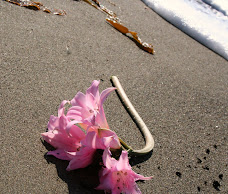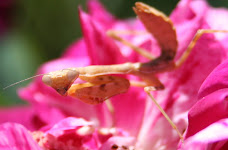
Keep walking, though there’s no place to get to.
Don’t try to see through the distances. That’s not for human beings.
Move within, but don’t move the way fear makes you move.
Today, like every other day, we wake up empty and frightened.
Don’t open the door to the study and begin reading. Take down a musical instrument.
Let the beauty we love be what we do.
There are hundreds of ways to kneel and kiss the ground.
Rumi
I think about these words by Rumi as I try to get my wits back after witnessing a mental meltdown by my mother. Just yesterday I talked about her wisdom and honor in spite of her dementia. I went to visit her that afternoon, and she just went sideways with a desperate sort of frustration. She said words that hurt and made a scene that was frightening.
“Keep walking, though there’s no place to get to.”
Alcoholics Anonymous teaches us to the take the body, and the mind will follow.
Do what is necessary, the next right thing.
“Don’t try to see through the distances. That’s not for human beings.”
Why has my mother been broken this way? How can I continue to be a good daughter when it hurts so much?
“Move within, but don’t move the way fear makes you move.”
I told my loved ones about it when I got home. I talked with my husband, called my sponsor. Their caring for me doesn’t make the pain less.
But I made better moves than I used to. I didn’t pick up a drink, drop a pill for relief.
moves than I used to. I didn’t pick up a drink, drop a pill for relief.
Rumi says that if I am frightened, I should not sit down and be quiet about it. I should make music. We should participate in the beauty we love.
“There are hundreds of ways to kneel and kiss the ground.” This is the notion of paying homage to my Creator, to welcome myself home to the land I love.
On page 68 of the Big Book are some lines I love:
“We trust infinite God rather than our finite selves. We are in the world to play the role He assigns. Just to the extent that we do as we think He would have us, and humbly rely on Him, does He enable us to match calamity with serenity.”
I rise and greet the new day—not with fear but in the beauty I love.
Don’t try to see through the distances. That’s not for human beings.
Move within, but don’t move the way fear makes you move.
Today, like every other day, we wake up empty and frightened.
Don’t open the door to the study and begin reading. Take down a musical instrument.
Let the beauty we love be what we do.
There are hundreds of ways to kneel and kiss the ground.
Rumi
I think about these words by Rumi as I try to get my wits back after witnessing a mental meltdown by my mother. Just yesterday I talked about her wisdom and honor in spite of her dementia. I went to visit her that afternoon, and she just went sideways with a desperate sort of frustration. She said words that hurt and made a scene that was frightening.
“Keep walking, though there’s no place to get to.”
Alcoholics Anonymous teaches us to the take the body, and the mind will follow.
Do what is necessary, the next right thing.
“Don’t try to see through the distances. That’s not for human beings.”
Why has my mother been broken this way? How can I continue to be a good daughter when it hurts so much?
“Move within, but don’t move the way fear makes you move.”
I told my loved ones about it when I got home. I talked with my husband, called my sponsor. Their caring for me doesn’t make the pain less.
But I made better
 moves than I used to. I didn’t pick up a drink, drop a pill for relief.
moves than I used to. I didn’t pick up a drink, drop a pill for relief.Rumi says that if I am frightened, I should not sit down and be quiet about it. I should make music. We should participate in the beauty we love.
“There are hundreds of ways to kneel and kiss the ground.” This is the notion of paying homage to my Creator, to welcome myself home to the land I love.
On page 68 of the Big Book are some lines I love:
“We trust infinite God rather than our finite selves. We are in the world to play the role He assigns. Just to the extent that we do as we think He would have us, and humbly rely on Him, does He enable us to match calamity with serenity.”
I rise and greet the new day—not with fear but in the beauty I love.
Chris Alba (c) 2009








































